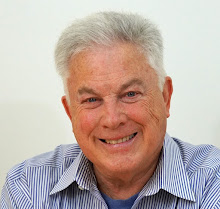I would have named this blog something with the word "Sudoku" in it, since the puzzles I'm placing here are Sudoku puzzles; but while the puzzle form itself isn't protected, that *name* "Sudoku" is--it's a trademark of puzzle publisher Nikoli Co., Ltd. in Japan, a fine company, with geniuses for employees, who apparently get to sit around all day and make up fabulous (and sometimes pretty darn difficult!) puzzles--wow.
So I called this blog "Magic Word Square," based on the fact that Sudoku puzzles are based on Latin Squares. I'll call my book "Word Sudoku" if I ever get it published and we talk to Nikoli for permission to use that word in the title. I haven't found a publisher yet...any takers? Master crossword constructor Frank Longo has published several books of Sudoku puzzles using words instead of numbers--so I guess I'd be his competition. That's not good for me! (I [try to] solve Franks' 21x21 Sunday crossword published in The Oregonian every Sunday.)
So what's a Sudoku puzzle? It's a logic puzzle, usually a 9x9 grid, with one and only one rule:

Puzzle: DECATHLON
Use the letters in the word DECATHLON to fill in the cells in the puzzle grid using the one and only rule: each row, column and 3x3 square contains each letter exactly once
Let me offer you proof of the opposite. I intend to "publish" one (or more, if the mood hits me) "Word Sudoku" puzzle here each day, and the answer the next day. While the puzzles are copyrighted, I grant you the right to print and complete--but not to publish them yourself; it's *my* intellectual property going into creating the word lists (I have 10,000 nine-letter words on my list right now) and making the puzzles.

Feel free to print the puzzles (jpegs) and complete them! I hope you enjoy solving them as much as I've enjoyed making them. And please give me your constructive feedback. *Do* you like these variations of the classic Sudoku puzzle? Shouldn't *your* newspaper call me and ask to publish these daily, next to the number version? (I have several thousand ready to go, already lined up by the day of the year, with Friday puzzles hidden word or diagonal, and Sunday puzzles size 12x12--I found the 16x16 Sunday puzzles in The Oregonian too hard, but I liked the challenge of *slightly* bigger puzzles!)
Here's your first three Word Sudoku puzzles, a classic 9x9, a "Hidden Word" 9x9, and a little more complicated hidden phrase puzzle using a 12x12 puzzle as its decoder.


12x12 Puzzle: IN BRASH QUOTE
Use the letters in the anagram IN BRASH QUOTE to fill in the cells in the puzzle grid using the one and only rule: each row, column and outlined 3x4 rectangle contains each letter exactly once; as you solve the puzzle and fill in the circled letters, place them in the correspondingly numbered cell in the quote grid, to spell out a famous quote
Thanks.
--Dave




No comments:
Post a Comment